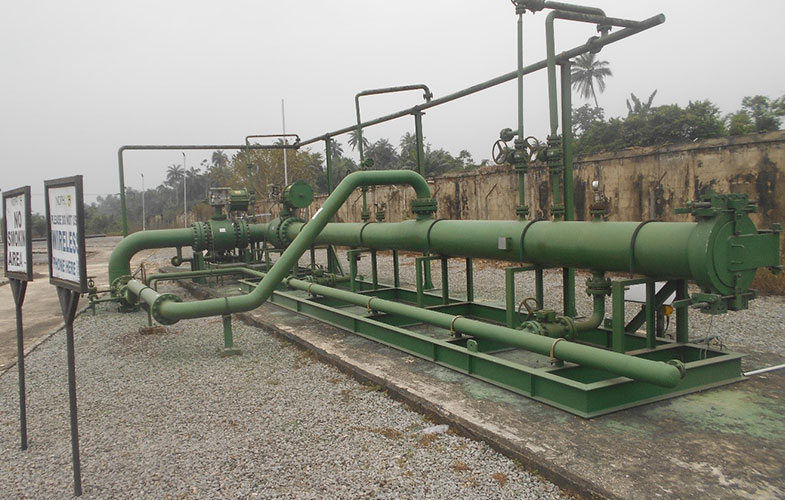The oil and gas industry is a cornerstone of the global energy sector. With pipeline and midstream operations playing a pivotal role in its success, achieving optimal flow assurance becomes essential. Disruptions caused by paraffin wax depositions pose significant challenges, impacting operational efficiency and safety.
To address these issues, embracing comprehensive solutions is crucial. Pipeline maintenance, pipeline pigging, and the innovative use of dissolvable chemical pigs and oilfield chemicals stand out as vital measures. A holistic understanding of these strategies ensures the growth and resilience of the industry.
Decoding Paraffin Wax and Asphaltene Blockages in Pipelines
Crude oils principally contain three core groups of compounds: saturated hydrocarbons or paraffins, aromatic hydrocarbons, and resins or asphaltenes. With paraffins behaving as high-molecular-weight alkanes, they are prone to accumulate as deposits in various pipeline structures. Conversely, asphaltenes, marked by their intricate constitution of aromatic rings, can precipitate under specific conditions leading to blockages.
Factors Influencing Blockages
-
Temperature Fluctuations:
Paraffin deposits arise from fluctuations in solubility due to changing temperature, pressure, or composition. For instance, pipelines, especially in offshore settings, exposed to diverse temperatures may witness paraffin accumulation.
-
Pressure Variations:
Although pressure might not directly influence the solubility of paraffin, it does alter the composition of crude. Thus, optimal pressure monitoring is vital to prevent unwanted aggregations.
-
Mixing of Incompatible Crudes:
Mixing varying crude types in a single pipeline can cause disruptions. Such imbalances can lead to the deposition of both paraffin wax and asphaltenes.
Implications of Blockages
-
Flow Impediments:
Organic deposit accumulation can restrict flow, creating increased back pressure and reducing efficiency. Regular pipeline maintenance is a proactive approach to maintaining flow consistency.
-
Elevated Operational Expenditures:
Addressing blockages can escalate costs. Regular pipeline oversight can be a cost-effective strategy, potentially curtailing unforeseen expenses.
-
Safety Implications:
Pipeline integrity is crucial. Blockages can escalate risks like pipeline ruptures due to localized corrosion or elevated pressures from obstructions. Thus, maintaining clear pipelines is fundamental.
In the realm of pipeline maintenance, understanding these complexities is essential. As we transition into examining traditional pipeline maintenance methods, it becomes clear that a proactive approach is not only beneficial but essential.
Traditional Methods of Pipeline Maintenance
As the lifeblood of the global energy sector, pipelines require meticulous care to ensure efficiency and safety. Traditional maintenance methods have been a mainstay in the industry, evolving over time to meet the challenges presented by varying terrains, product types, and operational constraints. Two principal techniques — mechanical pigging and chemical treatments — form the backbone of these pipeline maintenance strategies, each with its unique advantages and challenges.
Mechanical Pigging in Oil and Gas Pipelines
An age-old practice, mechanical pigging stands out as a foundational method for maintaining the health of oil and gas pipelines. The procedure is based on the deployment of a pipeline inspection gauge, usually referred to as a “pig.”
Designed to closely align with the internal diameter of a pipeline, these devices traverse the pipeline, propelled either by the flow of the product or external mechanisms. As they navigate the pipeline, pigs fulfill a dual role: they not only clean by scraping off accumulations but also act as diagnostic tools, identifying potential structural issues.
The origin of the term “pig” is tied to the distinct squealing sound produced by the earliest versions of these devices, which were initially constructs of straw bundled in leather or wire. Today, pigs are state-of-the-art tools with diverse configurations in materials, size, and functionalities.
A forward-thinking approach to pipeline maintenance involves pigging not merely in response to blockages but as a routine preventive measure. Such an approach safeguards the product flow, reduces contamination risks, and helps maintain the structural integrity of a pipeline. However, one must appreciate the limitations inherent to mechanical pigging.
Factors like the type of debris, pipeline size, and specific design can influence the effectiveness of a pig. Therefore, careful selection, based on specific pipeline conditions, is crucial, with options like utility pigs, specialty pigs, or gel pigs available.
While mechanical pigging is a linchpin in the world of pipeline maintenance, it represents just one facet of a holistic strategy. To address areas beyond the scope of mechanical methods, the industry frequently turns to chemical treatments. These treatments complement mechanical pigging, offering a layered approach to ensuring the longevity and efficiency of oil and gas pipelines.
Chemical Treatments in Pipeline Maintenance
Beyond mechanical solutions, chemical treatments have gained traction in ensuring optimal pipeline operations. Here’s an overview:
-
Wax Dispersants:
These surfactants adhere to pipe walls, reducing wax adhesion. Their efficiency often heightens when combined with a polymeric flow improver.
-
Pour Point Depressant (PPD):
PPDs inhibit wax crystal growth, essential in reducing pour point temperatures of crude oil, as well as facilitating wax deposition removal. Evolving technologies now incorporate nanotechnology for enhanced wax deposition inhibitors.
-
Wax Crystal Modifier:
These chemicals influence wax crystal formation, leading to smaller crystals that remain stable within the oil phase, thereby reducing the pour point and viscosity of oil.
However, the use of oilfield chemicals, such as chemical treatments, demands a considered approach:
-
Environmental Concerns:
With potential environmental repercussions, selecting biodegradable alternatives is vital.
-
Safe Handling and Storage:
Adherence to containment, labeling, and safe transport measures can mitigate chemical spill risks.
-
Effective Disposal Methods:
Chemicals must undergo regulated disposal to protect the ecosystem.
-
Regular Monitoring:
Vigilant oversight and swift incident reporting can prevent ecological disasters.
-
Employee Training:
Equipping the workforce with knowledge about potential chemical hazards ensures safety protocol compliance.
Chemical treatments significantly bolster pipeline maintenance. Yet, finding a balance between operational efficacy and environmental care remains essential. As the industry evolves, new methods, like dissolvable chemical pigs, pave the way for even more efficient and environmentally conscious solutions.
Dissolvable Chemical Pigs: The Future of Pipeline Maintenance
Advancements in the oil and gas sector have unveiled the potential of dissolvable chemical pigs, marking a paradigm shift in pipeline maintenance. At the forefront of this innovation is PigRenew®, which holds the esteemed Green Seal® Certification, showcasing its commitment to environmentally responsible methods.
The Unique Attributes of PigRenew®
Developed as a specialized version of PipeRenew® by Ideal Energy Solutions, LLC, PigRenew® is a chemically induced pig unitized with a polymer that enhances its efficacy. This feature makes it ideal for pipelines requiring frequent pig applications. Its rough exterior mimics the abrasive prowess of mechanical pigs, allowing it to clean pipelines rigorously.
Notably, when PigRenew® encounters a significant amount of paraffin wax deposition, it seamlessly dissolves, ensuring continuous pipeline operation. Post-dissolution, PigRenew® leaves a micro-resistant film, offering a robust defense against both paraffin wax accumulation and corrosion.
Key Benefits of PigRenew®:
-
Potency: Effective against paraffin and asphaltene deposits over a wide range of temperatures.
-
Residual Protection: The micro-resistant film minimizes the possibility of future deposits and serves as an advanced corrosion inhibitor.
-
Superior Performance: Outshines traditional methods in cleaning efficiency and maintaining flow, while eliminating risks of mechanical damage due to a stuck pig.
-
Environmentally Responsible: Its Green Seal® Certification underscores its commitment to the environment and sustainability.
Application Recommendations for PigRenew®:
-
Pipeline Suitability: Ideal for pipelines with recurrent paraffin wax and asphaltene issues, as well as those needing regular traditional pigging.
-
Monitoring: Consistently observe pipeline temperature and water availability, crucial determinants of PigRenew® dissolution.
-
Preliminary Checks: Before deploying PigRenew®, ensure no large blockages exist that might impede its operation.
-
Maintenance Schedule: Integrate PigRenew® applications regularly to uphold pipeline integrity.
In light of these advancements, PigRenew® is poised to redefine the landscape of pipeline maintenance, championing efficiency, and environmental responsibility.
Optimizing Pipeline Maintenance with PigRenew®
The oil and gas industry continually grapples with the challenges posed by paraffin wax and asphaltene blockages. These blockages significantly compromise the operational integrity, efficiency, and safety of pipelines, which are essential conduits for the world’s energy supplies.
Maintenance of these pipelines is more than a necessity, it is a pivotal aspect of ensuring the uninterrupted flow of hydrocarbons. In response to these challenges, the introduction of dissolvable chemical pigs has emerged as a game-changer. Among them, the innovative PigRenew® stands out as a leading approach.
What makes PigRenew® unique? When it encounters paraffin wax blockages, it dissolves seamlessly. This not only guarantees uninterrupted pipeline operations but also significantly reduces the risk of future blockages. Additionally, the micro-resistant film it leaves behind plays a dual role: it prevents the accumulation of future deposits and acts as a corrosion inhibitor.
But it is not just about efficiency. PigRenew® is a testament to environmental responsibility. Its Green Seal® Certification underscores a dedication to the environment and sustainability.
For organizations aiming to bolster their pipeline operations and work towards a sustainable future, recognizing the potential of PigRenew® is crucial. Contact Ideal Energy Solutions, LLC today for all your flow assurance and pipeline maintenance needs.



